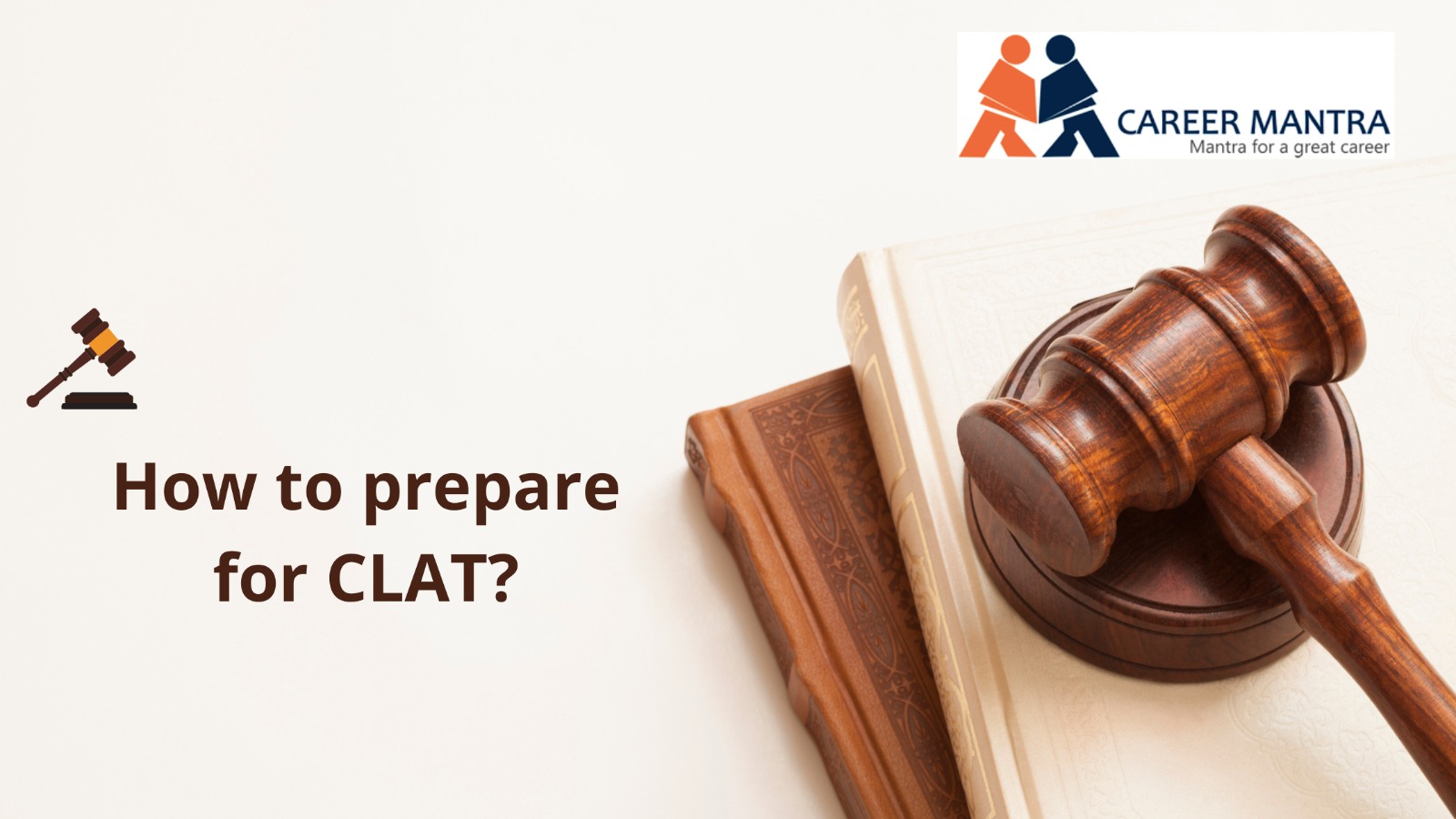How to prepare for CLAT?
How to prepare for CLAT?

The most treasured desire of most aspiring lawyers is to pass the CLAT. Every candidate has at least one question about how to get ready for the CLAT. To obtain a legal degree from an NLU, or one of India’s top law schools, you must perform well on the CLAT exam. It is never too early to develop a logical and effective CLAT preparation plan.
Anyone considering a successful legal career should be aware of how important NLUs may be to that trip, from packages worth 15LPA+ to obtaining a personal holistic growth. To do this, one must pass the sole entry exams for NLUs, such as CLAT and AILET.
A total of 70,000 applicants per year take the Common Law Admission Test, one of the most difficult legal entrance tests, in an effort to gain admission to one of the 22 National Law Universities. It may be a little intimidating to compete with all of these applicants for a spot at NLU. The exam is not very difficult to pass, though, if you are dedicated to your aim.
Prepare for CLAT Plan –
- You must be familiar with the grading system. You should be aware of which portion will allow you to achieve the necessary score to pass the CLAT.
- You need to have a solid conceptual grasp to succeed on a test as difficult as the CLAT. To build a firm understanding of the concepts questioned in the CLAT, review your fundamentals and key ideas frequently.
- Writing the practise test the very same day that the principles are understood is crucial for concept reinforcing. Your conceptual knowledge will be improved, and you’ll be able to identify your areas of weakness.
Preparation for CLAT Tips –
Mathematics
Practice for this section! Practice, practise, practise You become more prepared as you practise more. It also helps to review your weak areas. You can improve your accuracy and stay up with the exam’s time constraints by using these approaches.
Knowledge of general topics and current events
In this area, awareness is essential. One needs to establish a daily routine of reading newspapers and watching the news. Basic knowledge of physics, history, and geography will be valued as a big advantage. Free news websites, such as the Hindu, are adequate sources for current affairs.
Legal Reasoning
You must concentrate primarily on historical precedents, contemporary legal concerns, and significant cases from the previous year if you want to ace CLAT2024. It significantly aids in grasping the portions more quickly. Read about all the latest legislation passed during the parliament’s monsoon and winter sessions, as well as current events. If you don’t have enough time to read and comprehend the passage, there may be questions. In these situations, having prior information is quite beneficial. Work on your legal terminology, jargon, foreign language, and maxims vocabulary. If you are unsure about the definition of a term, look it up and read it several times.
English language
It is essential to read as much as you can for this section. Your responding speed will rise if you read the newspaper and practise reading comprehension passages. Solve the exam questions from last year. Take practise exams online to gauge your success.
CLAT 2023 –
On December 18, 2022, the Consortium of NLUs will conduct CLAT 2023. 22 National Law Universities take part in the CLAT each year in order to be considered for admission to undergraduate integrated programmes through CLAT UG. The consortium also administers CLAT to graduate students. In order to improve their CLAT 2023 results, law students aiming for the top NLUs must work on strengthening their preparation. The test will emphasise the candidates’ comprehension and deductive reasoning abilities.
Exam Pattern –
There will be 150 multiple-choice questions in CLAT 2023, and one mark will be given for each response that is right. You will lose 0.25 if you attempt a bad response. Contrarily, the CLAT 2023 Current News part can gauge a candidate’s familiarity with current events.
Although you may already be aware of it, the CLAT just underwent a format change. There have been numerous changes made to both the course material and the format of the exams. Any modifications should be kept up to date, since they will have a significant impact on how well you are prepared and perform as a candidate. You can gain a better idea of the test by looking at the CLAT Syllabus 2023.
The applicant is needed to read the entire CLAT syllabus. A few preparation ideas and techniques are given to those who are interested in taking the CLAT 2023 entrance exam, and they must be followed in order to perform well on the test.
English Language
In CLAT 2023, questions about reading passages with about 450 words will be asked. The episodes will be based on real or made-up books that were published recently or long ago and are regarded as important. Following the completion of each text, you will be given a set of questions that will test your command of the language and will require you to prove that you are competent in doing duties like the following:
-
- Based on what you read in the materials, develop your own theories and deductions.
- Summarize the information that was read.
- Acquire a comprehension of the meanings of the sentences’ words and phrases.
Current affairs, as well as general knowledge
- This section’s questions could ask you to evaluate legal facts or materials that have been mentioned or linked to a certain topic. But other than being able to understand the information in this part, they won’t require any prior expertise.
- The facts will be the main focus of this section. You should constantly consider if you are aware of the right response when replying to inquiries of this nature.
- The applicant must be knowledgeable of recent events across the globe and up to date on current events.
- The candidate must read news articles, bulletins, and publications related to their field in order to stay current.
Legal Reasoning
- You are not need to have any legal knowledge. If you are more knowledgeable about current legal and moral difficulties, you will be better equipped to apply common norms, suggestions, or the truth in a particular circumstance.
- Answers should emphasise legal reasoning more so than general knowledge. Information that is solely based on the law and free from principles or opinions may affect reactions.
- The legal procedures of the various countries must be followed by the candidates.
- Since stress will impair focus and cognitive ability during the exam, the candidate should practise the previous year’s questions to reduce time demands. To keep up with the changes, the candidate should review the questions from the prior year.
Logical Reasoning
- Before moving on to the following step, it is required that you are comfortable with the argument, placements, and conclusions. You have read the disputed paragraphs and are acquainted with their arguments.
- Make metaphors and analogies, look for imbalances and inconsistencies, and evaluate the persuasiveness of arguments.
- A person who wants to learn more should have a strong foundation in the principles of logical reasoning. He needs to be able to draw people away.
- Before taking the exam, candidates are strongly advised to familiarise themselves with sample papers, questions from the previous year, and example problems.
Find Top Colleges in India:-
For more information Chat on WhatsApp:-



